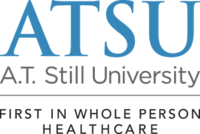Doctor of Health Education or D.H.Ed. programs are available 100% online. They sharpen students’ leadership and teaching skills needed to take on advanced professional responsibilities in the area of health instruction.
The Doctor of Health Education degree is an advanced post-graduate degree designed for those wishing to pursue a career in the field of health education. In this program, students will develop specialized skills in educational research, as well as gain expertise in public policy and health system administration.
Through a combination of coursework, research, and field practice, students learn to assess the needs of communities, programs, and services and design and implement evidence-based health education solutions.
As they are taught to be proficient in collecting and interpreting data on public health, D.H.Ed. students are equipped to educate the public on pressing health matters and improve their behavior toward health in general.
You most likely have heard of the quote, “An apple a day keeps the doctor away.” While this statement rings true, there’s more meaning to it than what it says.
As a health specialist who has received advanced training in research and instruction, a Doctor of Health Education sheds light on the many research-based truths about optimizing the condition of the body.
A D.H.Ed. also emphasizes the public’s obligation to maintain fitness, wellness, and overall health. Health education is a growing field you should be a part of, no doubt!
Best Doctor of Health Education Schools
INDIANA UNIVERSITY ONLINE

PUBLIC HEALTH, GLOBAL HEALTH LEADERSHIP, DrPH
School Highlights: Indiana University operates numerous campuses throughout the state, including one that is entirely dedicated to the delivery of online degrees. Indiana University Online provides a distinctive Doctor of Public Health degree focused on Public Health and Global Health Leadership.
Many of the courses are concentrated around worldwide issues and give students the necessary training and knowledge to create solutions to healthcare’s biggest battles. The coursework is available 99% online, depending on individual students’ choices, and is very affordable for in-state residents, in particular.
Coursework Sample:
- The Science of Global Health Implementation
- Executive Communication for Global Health Leaders
- Organizational Leadership Theory and Practice
Campus Location: Bloomington, IN
Accreditation:
- Higher Learning Commission
- Commission on Accreditation of Healthcare Management Education
- Council on Education for Public Health
Acceptance Rate: 80% Retention Rate: 57% Graduation Rate: 80%
LEARN MORE ABOUT INDIANA UNIVERSITY ONLINE’S DOCTOR OF PUBLIC HEALTH – PUBLIC HEALTH, GLOBAL HEALTH LEADERSHIP
A.T. STILL UNIVERSITY

DOCTOR OF HEALTH EDUCATION ONLINE
School Highlights: A.T. Still University is an incredibly well-respected school that has appeared on Online-Phd-Degrees.com lists and ranked numerous times. Now, we have the honor of highlighting one of the rarest degree programs within health education in the entire country, which, remarkably enough, is only offered at ATSU and is also 100% online.
Additionally, the tuition rate is extremely affordable at $650 per credit hour, half of what most doctoral students pay for other degrees, both on-campus and at a distance.
ATSU actually provides two exciting options for health professionals seeking terminal degrees in education, both of which are available entirely online. Each offers a unique lens into health science instruction.
Program Options:
- Doctor of Health Education
- Doctor of Education in Health Professions
Campus Location: Kirksville, MO
Accreditation:
- Higher Learning Commission
Acceptance Rate: 31% Retention Rate: 71% Graduation Rate: 99%
LEARN MORE ABOUT A.T. STILL UNIVERSITY’S ONLINE DOCTOR OF HEALTH EDUCATION
EAST CAROLINA UNIVERSITY

PUBLIC HEALTH – DrPH
School Highlights: East Carolina University is an excellent school that provides numerous outstanding online degree programs, such as its phenomenal Doctor of Public Health. This curriculum offers two exciting concentration options that lead students into vastly different areas of the profession.
Despite their choice, DrPH students can earn their degree completely from the comfort of their own homes and graduate with an exceedingly respected doctorate in a valued area of the healthcare profession.
Students hone current skills and develop new ones that allow them to take on any suitable position in their area of expertise.
Concentration Options:
- Environmental and Occupational Health
- Health Policy, Administration, and Leadership
Campus Location: Greenville, NC
Accreditation:
- Higher Learning Commission
- Council on Education for Public Health
Acceptance Rate: 94% Retention Rate: 81% Graduation Rate: 66%
LEARN MORE ABOUT EAST CAROLINA UNIVERSITY’S ONLINE PUBLIC HEALTH DOCTORATE
JOHNS HOPKINS UNIVERSITY

ONLINE DOCTOR OF PUBLIC HEALTH (DrPH)
School Highlights: One of the nation’s most prestigious universities, Johns Hopkins provides the highest quality education in healthcare available in America and quite possibly the world. At this outstanding institution of higher education, the Doctor of Public Health is a 64-credit program available entirely online and can be finished anywhere between four to nine years.
This Ph.D. health education program provides six exciting concentration options, one of which allows students to forge their own paths and create personalized research topics alongside their brilliant professors.
There are additional opportunities to further focus the coursework on various Data Analysis Tracks, as well.
Concentration Options:
- Environmental Health
- Health Equity and Social Justice
- Health Policy and Management
- Implementation Science
- Global Health: Policy and Evaluation
Campus Location: Baltimore, MD
Accreditation:
- Middle States Commission on Higher Education
- Commission on Accreditation of Healthcare Management Education
- Council on Education for Public Health
Acceptance Rate: 8% Retention Rate: 96% Graduation Rate: 93%
LEARN MORE ABOUT JOHNS HOPKINS UNIVERSITY’S ONLINE DOCTOR OF PUBLIC HEALTH DEGREE
UNIVERSITY OF ILLINOIS CHICAGO

ONLINE DOCTOR OF PUBLIC HEALTH LEADERSHIP
School Highlights: As a degree with a focus on leadership, this Doctor of Public Health online curriculum trains students to enter positions with the highest levels of responsibility in a huge variety of healthcare environments.
They gain the knowledge and experience to continue their healthcare careers as researchers, educators, administrators, or practitioners. The coursework has a strong concentration on practice-based research, public health policy, and effecting change in local, national, and international capacities.
Coursework Sample:
- Organizational Theory and Leadership
- Economic Analysis in Health Systems
- Public Health and Aging
Campus Location: Chicago, IL
Accreditation:
- Higher Learning Commission
Acceptance Rate: 8% Retention Rate: 96% Graduation Rate: 93%
LEARN MORE ABOUT THE UNIVERSITY OF ILLINOIS CHICAGO’S ONLINE DOCTOR OF PUBLIC HEALTH LEADERSHIP
Frequently Asked Questions
What does a Health Educator do?
A health educator is a medical professional who teaches health-related subjects in a range of environments. Upon earning a Ph.D., health educators may instruct in academic, clinical, and organizational settings. They share their knowledge and experience in healthcare to promote lifestyles that contribute to optimum health.
Health educators reach out to and work with community workers to collect data relevant to health issues. Following intensive study and research, they use all the information to evaluate the health concerns and develop ways to address them.
Preventive medicine is a critical category of health instruction that health educators advocate. They explain to people the components of a balanced and healthy diet. They also encourage individuals to exercise, as well as warn them against adverse behavioral patterns like smoking. Health education programs also include mental health topics such as physiological treatments.
Aside from matters that directly affect individual health, health educators also ready individuals to make the right choices from a social perspective. Sex education, for one, is a vital component of health instruction.
Health educators also encourage knowledge of basic protocols in cases of emergency, such as administering initial response or assistance to life-threatening situations because of health conditions and knowing the hotlines to call for help.
By health promotion literacy, health educators help improve medical doctor-patient dynamics as it relates to addressing health problems.
What sort of accreditation should I look for in a school?
For now, no single authority specifically accredits D.H.Ed. programs in the United States. Most often, a credible school is accredited by the Council for Higher Education Accreditation (CHEA) and its regional accreditation committees.
In similar degrees to the Doctor of Public Health (DPH), the Council on Education for Public Health (CEPH) is also a recognized accrediting body.
How do I earn my D.H.Ed. degree?
For those who wish to pursue the D.H.Ed. degree, you must have at least a Master’s degree in Health Education or a related field. Some universities also require that your Master’s degree in Public Health must be earned either in the United States or Canada.
The D.H.Ed program is designed for practicing clinicians, healthcare educators, leaders, and directors who want to take their craft a notch higher. Online D.H.Ed. curricula allow for a flexible schedule enabling students to get a post-graduate education while advancing in a career.
Instead of a dissertation, D.H.Ed. graduate students are required to complete a comprehensive Doctoral Research Project (DRP). The DRP is a written document of publishable quality in peer-reviewed journals. Students work with their advisers to ensure the completion of the work.
A D.H.Ed. student may specialize in these areas: Public nutrition, Health education administration, School health, Minority health, Epidemiology, Behavioral theory, Multivariate statistics, Health services planning, and Health Policy.
What type of degree do I need to pursue research or educate others in Health Education?
Aside from the D.H.Ed., a Ph.D. degree holder in Health Education or congruent disciplines may teach in D.H.Ed. Graduate schools. The dissertation and DRPs of students and professors are notable contributions to the discipline.
How do I earn a transitional or bridge D.H.Ed. degree?
Although very uncommon, the D.H.Ed. degree is offered online. You can fill out the forms at home. Then, when you get accepted by the institution, you can finish the program without even stepping foot on campus.
What kind of career and salary can I expect with my D.H.Ed. degree?
Health educators typically work in communities and coordinate with health workers and researchers. Recent figures from the Bureau of Labor Statistics indicate health educators earn an annual median salary of $59,990 with a bachelor’s degree. Once you have a Ph.D. in health education, you are expected to hold greater responsibilities and leadership positions.
You will earn roughly $106,210 per year. BLS estimates a 7% rise in demand for health education personnel by the year 2032 as the country emphasizes more on education and preventive healthcare.
Do I need a license to be a Health Educator?
Yes, in the field of health education, you need to pass the Certified Health Education Specialist (CHES) after earning your bachelor’s or master’s degree in health education. This 3-hour health education exam requires you to answer 165 questions.
The CHES exam is sponsored by the National Commission for Health Education Credentialing (NCHEC), which is accredited by the National Commission of Certifying Agencies and the International Accreditation Service (IAS). Check out other health organizations as well for more valuable information.
What schools offer D.H.Ed. degrees?
This health education degree is exceedingly rare. As of 2021, A.T. Still University in Kirksville, Missouri, is the only school offering a Doctor of Health Education (D.H.Ed.) degree, specifically, which is also available as 100% online education!
For many applicants, a popular alternative would be an online Doctor of Public Health (DPH), which is offered by far more universities across the country. Some of the finest examples include Johns Hopkins University in Baltimore, Maryland; East Carolina University in Greenville, North Carolina; the University of Illinois Chicago; and Indiana University Online in Bloomington, Indiana.
What are the advantages of earning a Doctor of Education degree?
Here are a few to consider:
- Increase Your Professional Expertise: Earning a Doctor of Education degree can equip you with a greater understanding of current and emerging trends in education, allowing you to become a more effective leader, researcher, or instructor within the field.
- Boost Your Career Potential: A Doctor of Education degree can provide the credentials and educational background necessary to pursue higher-level positions in educational organizations, such as becoming an academic dean, a director of special projects, or an education consultant.
- Advance Your Research and Scholarship Abilities: A Doctor of Education prepares you to perform quality research and develop original studies in education that can advance the field.
- Access Leadership Opportunities: With a Doctor of Education, graduates can pursue leadership roles in educational settings and, if interested, teach at the university level.
- Expand Your Network: Earning a Doctor of Education can help you grow your network of colleagues in the field, gain access to professionals in your area of study, and establish relationships with other educational leaders.
The Bottom Line
Earning your D.H.Ed. degree program provides many opportunities for health education specialists to instruct others in public health education, health disparities, and population health, community health education, community health assessment, disease prevention, health sciences and health behavior, adolescent health education, and so much more.
In addition, you can become a program director for health departments or concentrate on focusing specifically on education technology and educational innovation within the field of healthcare education.
A doctoral program provides healthcare professionals with leadership, management, and research opportunities in health program development.
Health education is an important part of community health, as health-related issues (most recently, COVID-19) must be handled diplomatically while providing public safety information to everyone.
